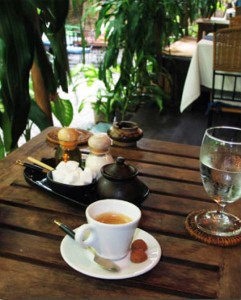F.A.Q.
 What is a Civet?
What is a Civet?
A civet is a catlike animal native to south-east Asia and southern China. It closely resembles the mongoose family. The Philippine name for the Palm Civet (Paradoxus hermaphroditus) is Alamid or Musang. The name Luwak or Luak is the name used in Indonesia. The Palm Civet weighs about seven pounds with a body length of around twenty-one inches, excluding its approximately nineteen inch tail.
What is Civet coffee?
Civets eat coffee cherries (a fruit). The beans are not digested, so they pass through the civet’s digestive track and are collected, washed and roasted. As the beans pass through the digestive track of the civet, some of the proteins are broken down, making the coffee much less acidic, with a delightfully smooth taste.
Where does our coffee come from and is it authentic?
Our coffee comes from the pristine Kalinga region in the far Northern Philippines. We receive our coffee directly from the Kalinga people through a Philippine gentleman who was named “Honorary Father of the Kalinga Nation” in July 2006. It is, indeed, authentic civet coffee. Our coffee is sourced from WILD civets only. We do not condone nor sell coffee from caged civets.
What type of coffee beans do our Kalinga Palm Civets like to eat?
Our friends the Palm Civets are quite fussy as to what beans they like to eat. Eighty percent of our coffee trees are out in the wild, not on a plantation, and are made up of four varieties: Arabica, Excelsor, Liberica and Robusta. Since the civets have a keen ability to choose the ripest, sweetest coffee cherries, we leave it to them to create for us the finest natural blend.
Why does our Civet coffee taste so good?
The fussy Palm Civet chooses only the ripest and sweetest coffee cherries. The beans then pass through the digestive tract, where enzymes break down some of the proteins in the beans, producing beans of low acidity and thereby resulting in a very smooth, much less acidic brew.
Is there more bacteria in Civet coffee than in regular coffee?
No, there is actually less. The enzymes in the digestive tract, as well as the rigorous washing and sun drying of the beans, help to eliminate bacteria, along with the high temperature roasting process.
Is our Civet coffee organic or Fair Trade Certified?
Due to the way our coffee is collected in the wild it is not eligible for Fair Trade Certification, nor are we able to organically certify it. It comes from a mountainous region that is free of chemicals and pesticides. After it is collected it is washed in pristine mountain spring water and dried in the sun.
Who came up with this process for Civet coffee?
We have no idea! We do know that coffee has been collected and processed this way throughout Asia for a long time, though until recently no one was talking about it!
Leave a Reply